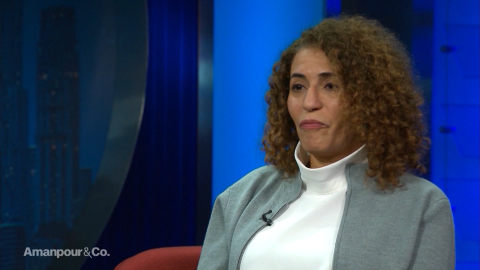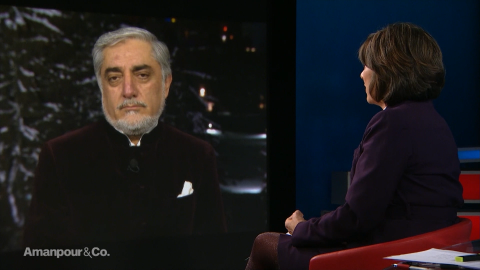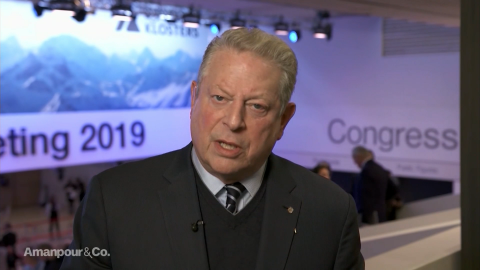Read Transcript EXPAND
CHRISTIANE AMANPOUR: President Trump has, you know, said many times that there’s a transactional quality to what he — you know, the way he’s engaging around the world. And why not have mercenaries, in other words, guns for hire to go to places instead of sending Americans? So I was just speaking to General McChrystal and also to Sean McFate, a former colonel who’s also served in Afghanistan. This is what he told me about Blackwater and Erik Prince and that mercenary group.
(BEGIN VIDEO CLIP)
SEAN MCFATE, FORMER COLONEL: So Erik Prince, the founder of Blackwater. His sister is Betsy DeVos, the Secretary of Education. He is proposing this plan where all American troops in Afghanistan get replaced by mercenaries. And he thinks that 6500 mercenaries can “fix” Afghanistan. No, it can’t. That’s dangerous thinking. And worse than that is if the U.S. continues to do this, then it legitimizes it for the rest of the world.
(END VIDEO CLIP)
AMANPOUR: So he obviously doesn’t think it’s a good idea. What do you think and would Afghanistan accept mercenaries, guns for hire, a kind of a private army instead of the American Armed Forces?
ABDULLAH: I couldn’t agree more with the gentleman which commented on this issue. The minute you turn something that we think is part of global efforts in dealing with terrorism and if a source of peace and stability stabilization of our part of the world which has an impact on the rest of the world, then main return — the minute that we turn this into a private enterprise, would you think that the people of Afghanistan would be able to pay the high price that they continue to pay? The casualties of our soldiers or people on daily basis is just unacceptable. The fact that they think that they are defending a legitimate government, legitimate government in values which are our common values, and preventing Afghanistan from going back to the old days when men and women of the country were treated as subhuman, that is the main motivation. The fight is between cruelty and civil life between our forces, our people, and those forces which are fighting against us. When it comes to the negotiations, the negotiations will start when Taliban come to the negotiating table with the Afghan government, with the Afghan side. The American envoy, Ambassador Khalilzad has been trying very hard. I’m not briefed about his recent visit to Doha. Yesterday, he was in Doha. I hope that he has made progress. But at the same time, it’s very obvious that it’s not the people of Afghanistan which are an obstacle towards peace, it’s not the government of Afghanistan, it’s not the international partners, it’s Taliban
About This Episode EXPAND
Christiane Amanpour speaks with former Vice President Al Gore about climate change; Capt. Jennifer Peace about being transgender in the military and Chief Executive of Afghanistan Abdullah Abdullah about America’s longest war. Hari Sreenivasan speaks with AP Correspondent Sarah El Deeb about the ongoing war in Syria.
LEARN MORE



